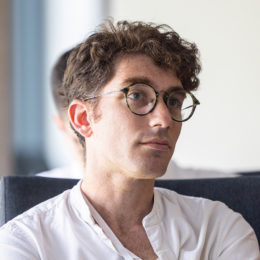Consider first apologizing. Since we are children, we are told by whoever oversees our moral education that we should apologize to others when we have done something bad to them. Con-sider next what happens when you absent-mindedly scratch another car while driving. In al-most all countries, you are required by law to compensate the owner of the car. Finally, consider the ongoing dispute between Poland and Russia regarding appropriate reparations owed by the latter to the first for the atrocities committed during the WW2 occupation.
Giulio Fornaroli
What these three scenarios have in common (apologizing, liability to compensation for negligent damage and reparations for historical wrongs) is that they include corrective prac-tices, i.e., practices that aim at correcting or repairing the wrongs some agents have inflicted on others. The project I intend to pursue is a philosophical examination of corrective practices. Specifically, the objectives of the project are: 1) elaborating an account of wrong that may ex-plain why wrongs require corrections, 2) explaining the relationship between corrective duties of interpersonal morality and the law of compensation, and 3) employing the concepts of wrong and corrective justice so elaborated to address the problem of reparations for historical wrongs.
Despite the vastity of the philosophical literature on corrections, we still lack a convinc-ing account of why some acts call for corrections and what corrections ultimately entail. Start-ing with Aristotle, who undoubtedly re-elaborates insights of folk morality, corrective duties are understood to be primarily about “reparation.” What the wrongdoer is supposed to do, ac-cording to the reparatory paradigm, is try to restore the status quo, thus bringing the victim back to a condition that is as much as possible similar to what it was before the wrong. But, it is not obvious why victims are entitled to that. Compare with the case of bad luck which can have an even more damaging impact on somebody’s condition. In at least some cases, we accept that victims of bad luck should just bear its burden and that they are entitled, at most, to charity and empathy. So, why are victims of wronging specifically entitled to this return to the status quo?
Or think about the role of the wrongdoer. What does it mean to wrong others? We may think that, to wrong others, one needs to intend the damage to occur – but that is certainly not the case with most car accidents. Or we may think that any damage suffered by someone that can be attributed to another’s causal contribution is, ipso facto, a wrong. But that too is implau-sible; if I scratch another car because I am swerving to avoid a pedestrian I have certainly “caused” the damage, but it seems far-fetched to say I have wronged the car owner. Wronging is something that morality condemns, whereas, in this case, I was doing the morally best thing!
Hence, we need a definition of wronging that can explain why wronging specifically calls for corrections. And we also need a satisfactory account of the content of corrective duties as the reparatory paradigm is implausible. That is what I plan to do in the first part of the investi-gation. I intend to argue that, when we wrong others, we always violate a fundamental moral duty we owe to every other member of the moral community, namely, the duty to grant them minimal moral concern, or, in other words, to treat them as beings that matter, morally speak-ing. This failure to grant others minimal concern is, I argue, what we need to correct. As such, the restoration of the status quo is not necessarily what corrective duties demand. Sometimes, repairing may be unnecessary because harms can be repaired by third parties without that pre-venting the wrongdoer from discharging her corrective duties. And it can be insufficient be-cause repairing the damage may be an overly easy option for some wrongdoers.
Once the account of wronging and corrections has been offered, I plan to move to the two applied sections of the investigations. I am confident the account I advance can give us helpful conceptual resources to treat both the case of the legal treatment of damage prevention and damage redress and the problem of how and when agents are required to correct for wrongs that happened historically.
Project details
Project title: Making Up for What We Did: From Morality to the Law; From the Present to the Past
Principal Investigator: dr Giulio Fornaroli
Host institution: Jagiellonian University in Cracow
Project duration: 01.03.2023 – 28.02.2025
Project’s website: https://incet.uj.edu.pl/en_GB/polonez-bis-making-up

